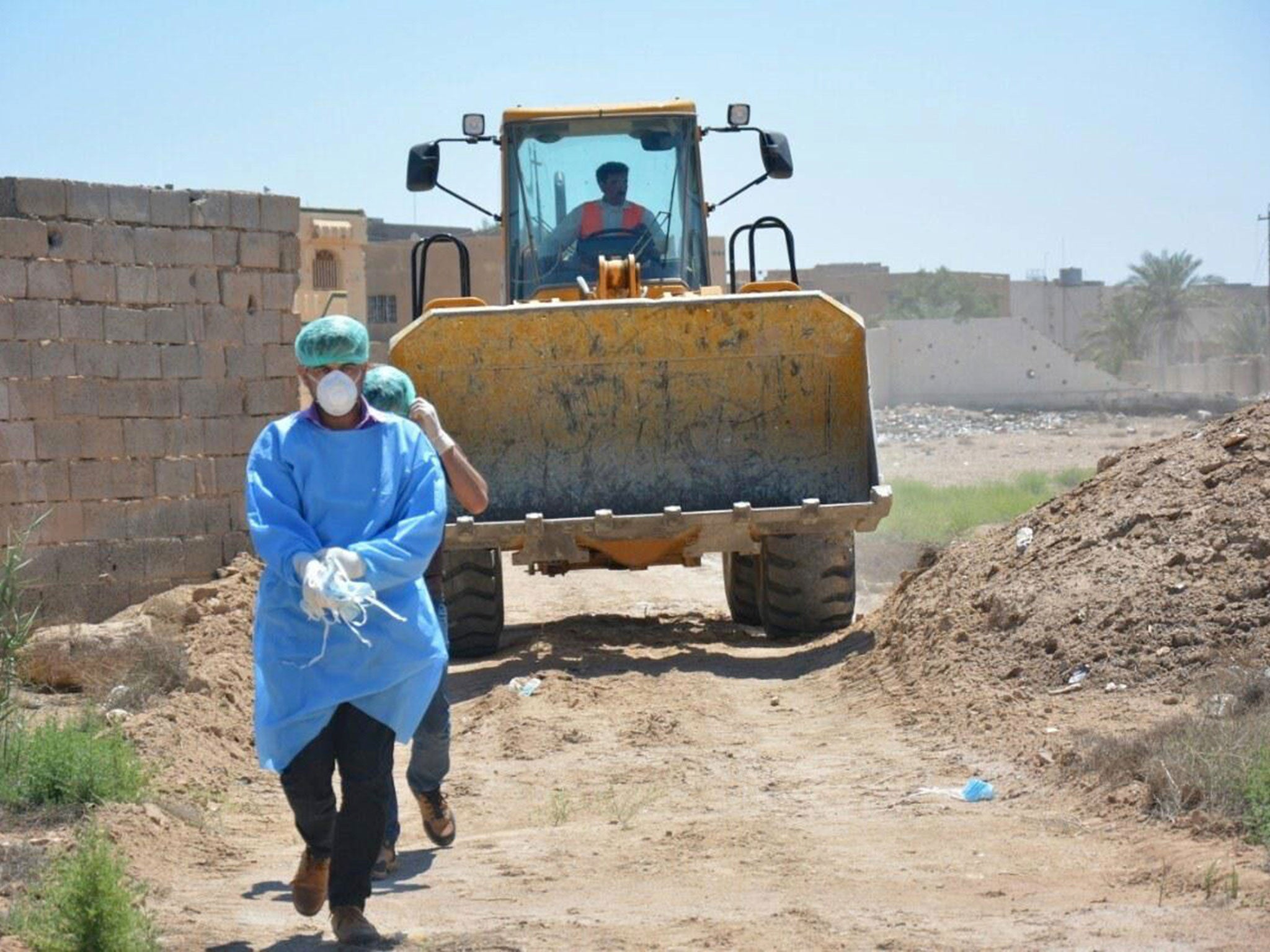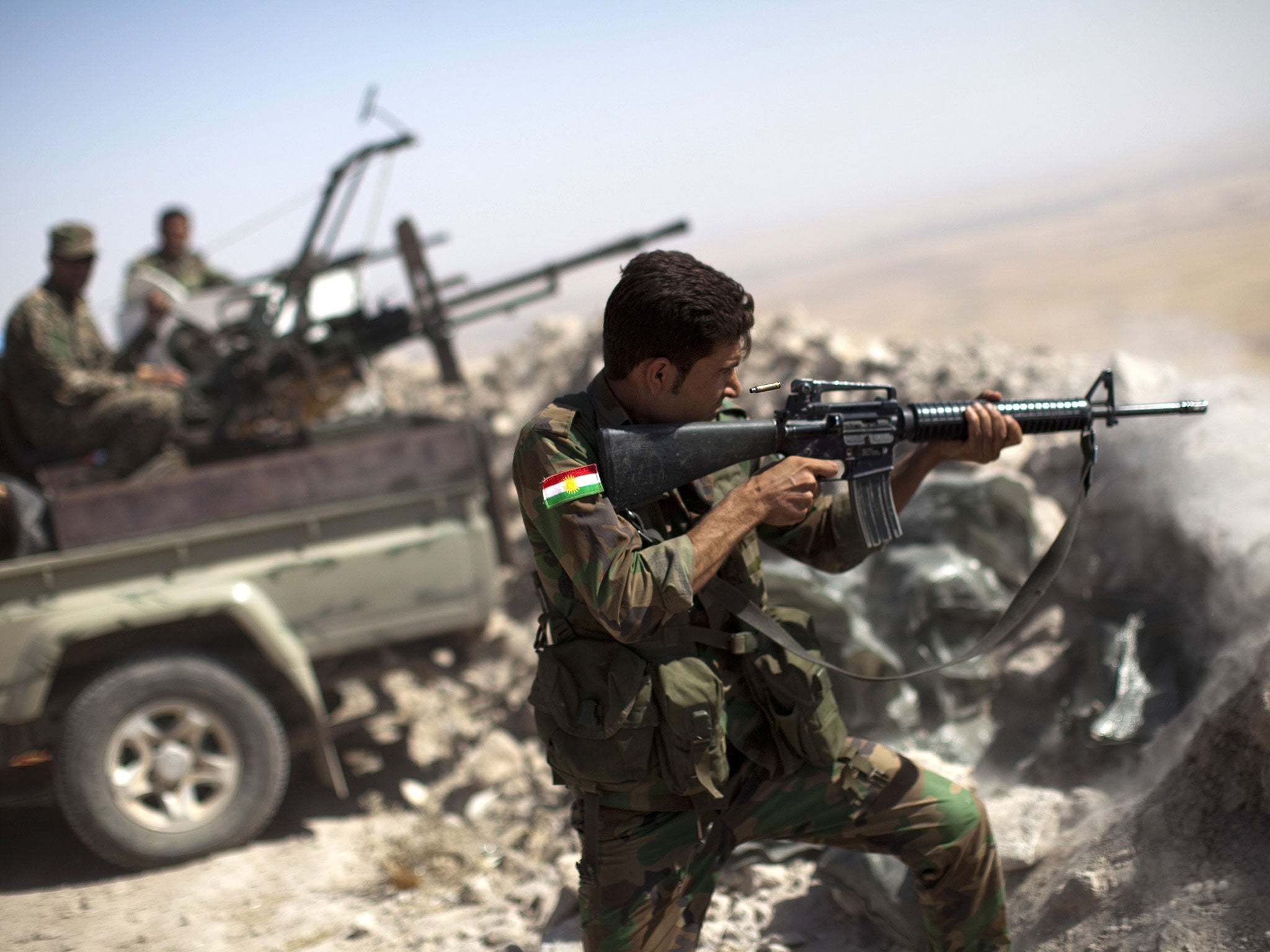More than 50 mass graves found in former Isis territories in Iraq as evidence of genocide mounts
A UN envoy said government forces were uncovering evidence of war crimes and crimes against humanity

Your support helps us to tell the story
From reproductive rights to climate change to Big Tech, The Independent is on the ground when the story is developing. Whether it's investigating the financials of Elon Musk's pro-Trump PAC or producing our latest documentary, 'The A Word', which shines a light on the American women fighting for reproductive rights, we know how important it is to parse out the facts from the messaging.
At such a critical moment in US history, we need reporters on the ground. Your donation allows us to keep sending journalists to speak to both sides of the story.
The Independent is trusted by Americans across the entire political spectrum. And unlike many other quality news outlets, we choose not to lock Americans out of our reporting and analysis with paywalls. We believe quality journalism should be available to everyone, paid for by those who can afford it.
Your support makes all the difference.More than 50 mass graves containing the bodies of men, women and children murdered by Isis have been uncovered in Iraq.
Government forces have been uncovering the sites one by one as they sweep territory formerly held by the so-called Islamic State, revealing further evidence of war crimes and possible genocide, a United Nations envoy said.
Jan Kubis, the Special Representative for Iraq, said the most recent grave was discovered at a football ground in Ramadi on 19 April, containing 40 bodies.
“As territory is retaken from the criminal and terrorist gangs of Daesh (Isis), evidence of the heinous crimes they have committed continues to be uncovered,” he told the UN Security Council on Friday. “More than 50 mass graves have been discovered so far in several areas of Iraq.”
Mr Kubis warned that Isis continues atrocities against women and children in the country, including forcibly recruiting Yazidi boys as child soldiers, while the fate of thousands of women and girls from the religious minority remains unknown.
Although efforts by the Iraqi and Kurdistan Regional governments have led to some being released, he said “much more needs to be done”.
American defence officials have recently hailed the re-capture of up to 40 per cent of territory overrun by Isis in Iraq, with Barack Obama claiming the group’s fighters realised their “cause is lost” amid continuing air strikes and military operations.
But Mr Kubis said that civil unrest and a political deadlock in Baghdad, which saw hundreds of protesters storm parliament in a protest last month, was serving the interests of Isis and other militant groups.
“Despite the notable and consistent progress on the ground against Isil (Isis), it remains a formidable and determined enemy that constantly adjusts its tactics and attack patterns,” he added.
“Isil cannot be defeated by military means alone. Without addressing the root causes of violent extremism and the underlying ideology, efforts will not be sustainable and lasting.”
The envoy said that military victories must be accompanied by rehabilitation efforts, the rule of law and unified government to fight the ideology of Isis, which originally started as a band of jihadist militants in Iraq.
Supporters of Shia cleric Muqtada al-Sadr have been holding demonstrations and sit-ins for months to demand an overhaul of the political system put in place by the US following the overthrow of Saddam Hussein in 2003, culminating in the storming of parliament on 30 April.
Iraq's ambassador to the UN, Mohamed Alhakim, said the country's leaders and elected political blocs are working to implement the prime minister's reform programme.
In a speech to the Security Council, he said: “The year 2016 is a crucial year for Iraq, it is crucial for combatting terrorism and recovering all the territory taken over by the (Isis) terrorist gangs,” he said.
He urged the US-led international coalition to target Mosul, the country's second-largest city and Isis’ de-facto capital in Iraq.

Government control is gradually expanding in Anbar province, with the re-capture of Hit last month hoped to pave the way for further gains in Salah al-Din, Kirkuk and Nineveh provinces.
Britain and other nations in the US-led coalition are conducting air strikes in support of Iraqi forces and the Kurdish Peshmerga, as well as targeting senior Isis officials and positions.
But there have been set-backs, including the death of a US Navy Seal in battles against Isis north of Mosul.
The Pentagon originally said Charles Keating died while “advising” Kurdish troops miles behind the frontlines, but footage obtained after his death showed fierce battles after their vehicles were attacked outside the town of Tel Osqof, which was later secured.
Additional reporting by AP
Join our commenting forum
Join thought-provoking conversations, follow other Independent readers and see their replies
Comments